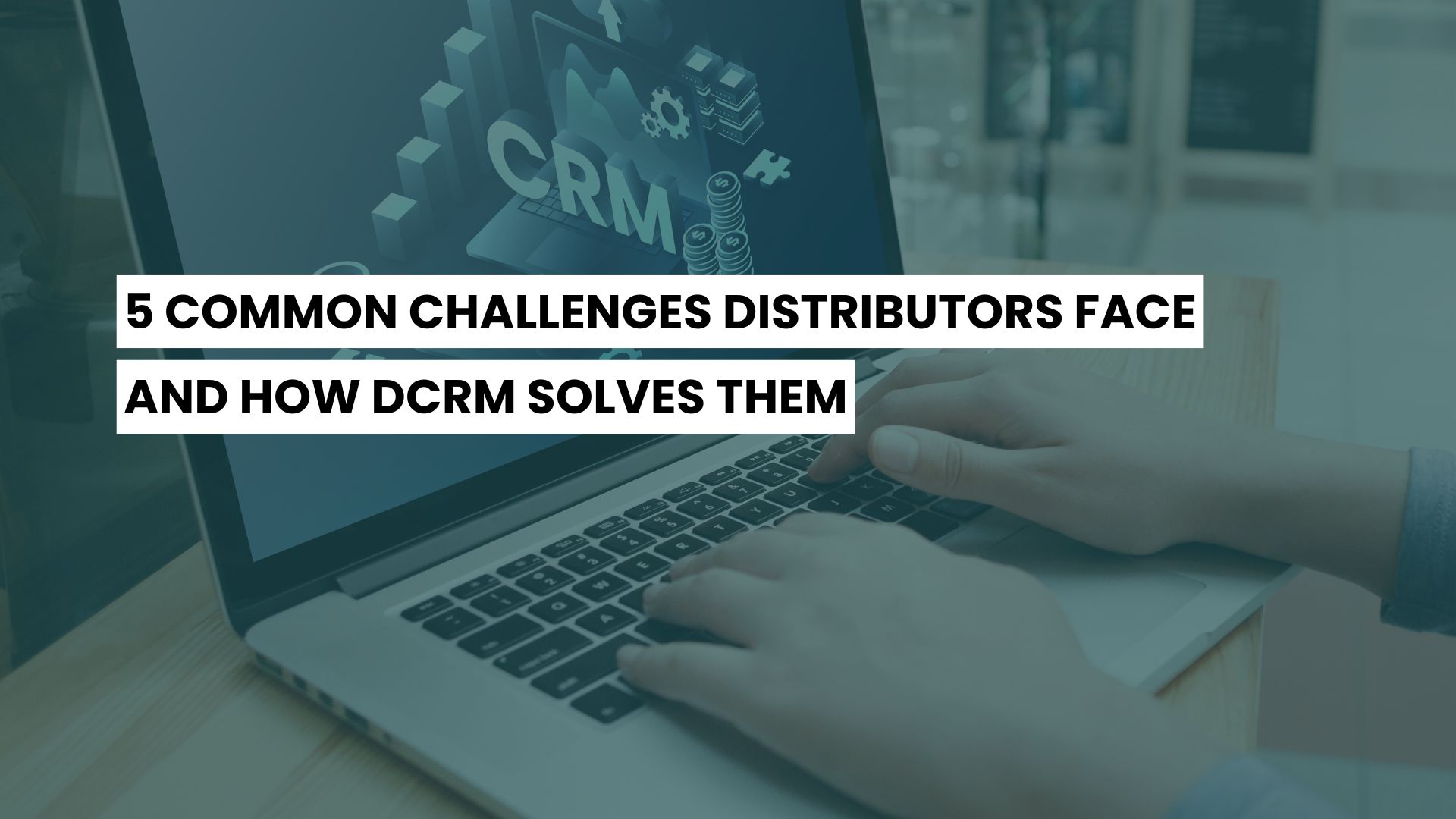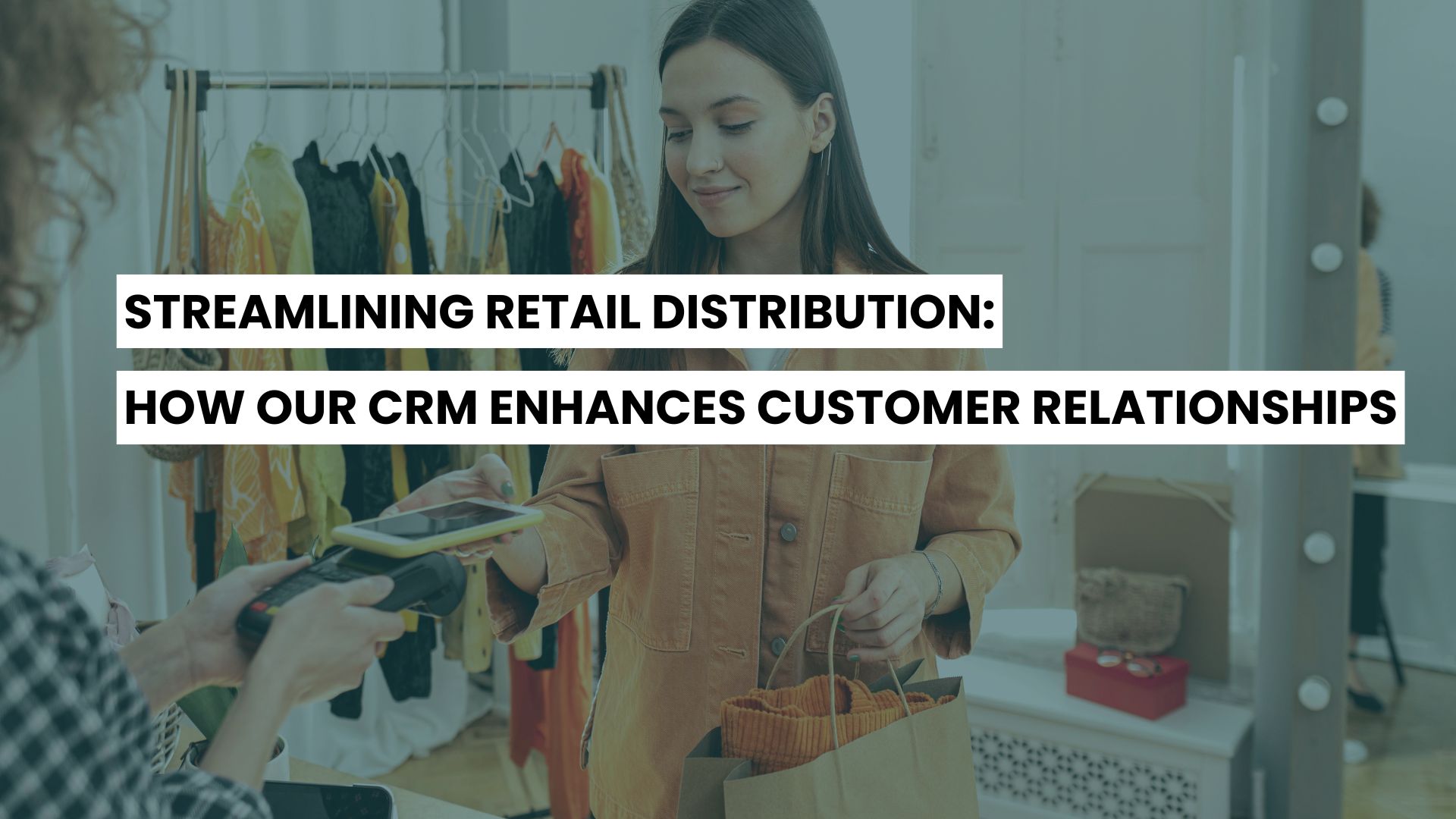Introduction:
In the ever-evolving world of distribution, building and maintaining strong relationships with customers is a key driver of success. Customer Relationship Management (CRM) systems have become invaluable tools for distributors seeking to elevate their interactions with customers. In this blog post, we will delve into how CRM enhances distributor-customer relationships, fostering loyalty, satisfaction, and long-term business partnerships.
360-Degree Customer View:
CRM systems provide distributors with a comprehensive view of each customer by consolidating data from various touchpoints. From purchase history and communication preferences to specific needs and feedback, a 360-degree customer view enables distributors to personalize interactions, anticipate needs, and offer tailored solutions.
Personalized Communication:
Tailoring communication is crucial in the world of distribution. CRM systems empower distributors to send targeted and personalized messages to customers based on their preferences, previous interactions, and buying behavior. This personalized approach not only strengthens the connection but also enhances the overall customer experience.
Order History and Preferences:
Understanding a customer’s order history and preferences is fundamental to delivering a superior service. CRM systems store and organize this information, allowing distributors to quickly access relevant details. By leveraging this data, distributors can anticipate product needs, suggest complementary items, and proactively address any potential issues.
Timely Follow-ups and Reminders:
CRM systems automate follow-up processes and reminders, ensuring that distributors never miss an opportunity to engage with customers. Whether it’s following up on a recent purchase, checking in on satisfaction, or informing about upcoming promotions, timely communication demonstrates attentiveness and reinforces the distributor’s commitment to customer success.
Efficient Query Resolution:
Customer inquiries and concerns are inevitable, but the key is addressing them promptly and effectively. CRM systems enable distributors to manage and track customer queries efficiently. This streamlined process ensures that issues are resolved promptly, fostering trust and confidence in the distributor’s commitment to customer satisfaction.
Customer Segmentation:
Not all customers have the same needs or preferences. CRM systems facilitate customer segmentation based on various criteria such as purchasing behavior, location, or industry. This segmentation allows distributors to tailor marketing strategies, promotions, and communication to specific customer segments, maximizing the relevance of their outreach efforts.
Feedback and Continuous Improvement:
CRM systems provide a platform for collecting and analyzing customer feedback. By understanding customer sentiments, distributors can identify areas for improvement, address pain points, and enhance their offerings. This commitment to continuous improvement reinforces the distributor’s dedication to meeting and exceeding customer expectations.
Conclusion:
In the competitive landscape of distribution, the strength of distributor-customer relationships can be a game-changer. CRM systems play a pivotal role in enhancing these relationships by providing a 360-degree customer view, enabling personalized communication, leveraging order history, automating follow-ups, resolving queries efficiently, facilitating customer segmentation, and encouraging continuous improvement through feedback. As distributors embrace CRM as a tool for relationship-building, they are better positioned to create lasting partnerships, foster customer loyalty, and thrive in an increasingly customer-centric market.




